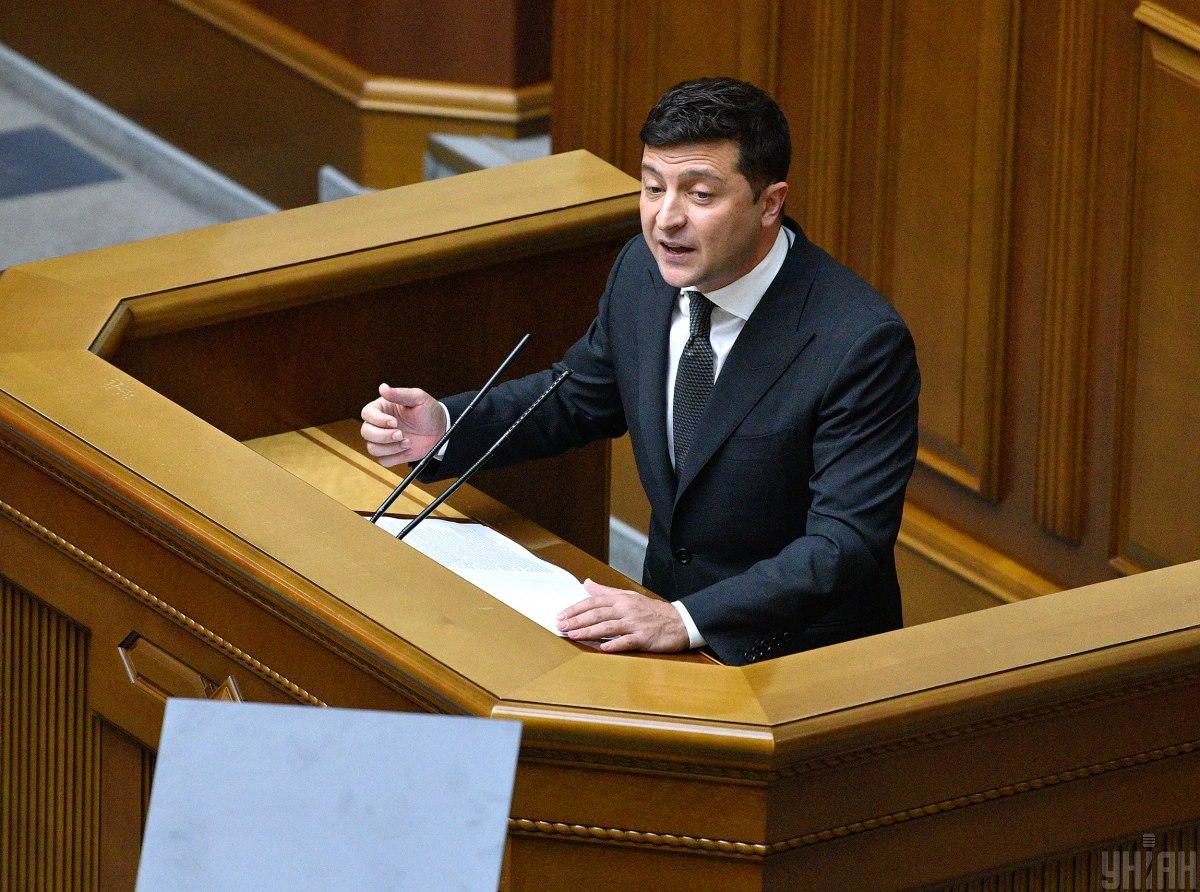
Ukrainian President Volodymyr Zelensky has submitted to Parliament a draft law, offering an early termination of powers of the Constitutional Court's entire composition.
The text was submitted late Thursday, Oct 29, the parliament's website says, adding it was identified as an urgent one.
The move comes following the CCU's recent judgment that sparked public outrage on the unconstitutionality of certain provisions of the law on corruption prevention and Article 366-1 of the Criminal Code (inaccurate asset declaration).
Read alsoEU Delegation: Constitutional Court's decision calls into question Ukraine's commitmentsThe draft law states, in particular, that the relevant CCU ruling is "null and void, as well as accepted by Constitutional Court judges in conditions of an actual conflict of interest."
Zelensky proposes to terminate the powers of CCU judges on the day the law enters into force and proposes to the relevant bodies to immediately launch the competitive selection of a new CCU composition.
"The Law shall come into force on the day following the date of its publication," the bill concludes.
Constitutional Court vs anti-corruption reform: Background
In July 2020, 49 MPs appealed to the Constitutional Court with a motion to recognize unconstitutional the law on the High Anti-Corruption Court of June 7, 2018, No. 2447-VIII.
On September 16, the Constitutional Court ruled unconstitutional certain provisions of the law on the National Anti-corruption Bureau of Ukraine.
On July 28, the CCU declared unconstitutional the presidential decree of April 16, 2015 on the appointment of Artem Sytnyk as NABU Director.
On October 27, the CCU, on the motion of 47 legislators, handed down a judgment rescinding Article 366-1 of the Criminal Code, which provides for liability for inaccurate asset declaration by government officials. Also, the CCU recognized the provisions of the laws on e-declarations' vetting as unconstitutional and stripped the relevant watchdog, the National Agency on Corruption Prevention of powers to vet declarations and identify conflicts of interest.
The CCU deprived the NACP of access to state registers required for vetting declarations of candidates for government offices, thus blocking the appointment of officials, including those who won in the latest local elections across Ukraine.
The NABU said that as a result of the CCU move, all criminal cases probing inaccurate asset declaration shall be closed, while officials exposed on abuse will avoid responsibility.
On October 28, pursuant to the CCU ruling, the NACP shut down public access to the Unified State Register of Asset Declarations, which was restored overnight Friday in line with the Cabinet decision following public outrage.

